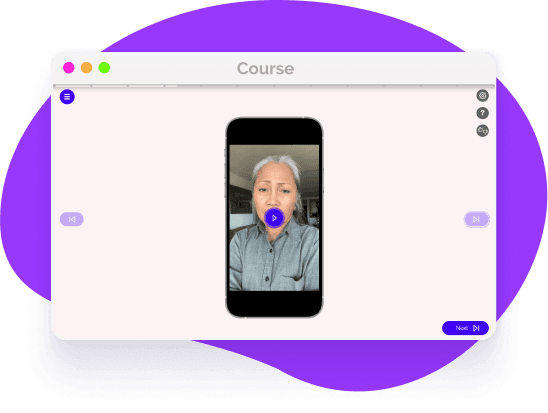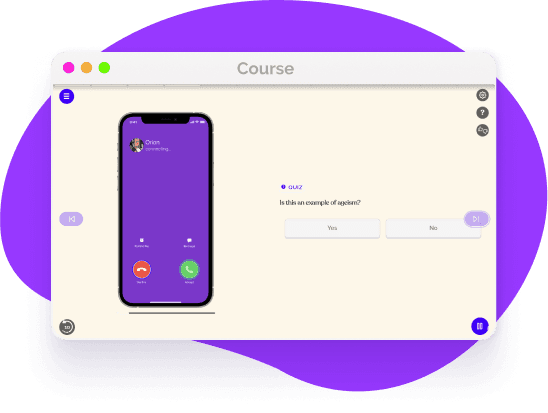What To Do if You Commit a Microaggression
In the conclusion of this training, we will discuss what to do if you commit a microaggression. Owning up to hurting others when you commit a microaggression is not about your intent or what you were trying to do. It is about your impact— what actually happened.

the difference between intent and impact
When you admit to microaggressions causing harm to others, it is not about your intentions or what you were attempting to achieve. It has to do with your impact actually transpired. Regardless of your intent, a person was harmed—that is the impact, and it is the most important part of the situation. Recognize the hurt you caused and learn from the experience.

If you get called out for committing a microaggression, there are a few key points to remember.
Your next step is to thank the person for telling you. It takes bravery to inform someone that they did something harmful. It also shows that person believes you have the ability to grow. By saying thank you, you are acknowledging what you did, while also showing respect for the person and situation. The third step is to learn the history behind why what you said or did was problematic. Saying thank you isn’t enough if you are unaware of what made your words or actions harmful. Learning the why can be quite eye-opening and impactful.
Step four is to apologize. Once you have learned the social, cultural, or systemic history behind how your words or actions were harmful, now you can give a more self-aware and authentic apology. Step five is to change the behavior. When you have been made aware that your words or actions were hurtful or harmful, and know why change your behavior.
First, resist the urge to react defensively. It’s natural for people to get defensive when someone informs them they committed a microaggression. And it's easy to quickly respond with a defensive statement, such as "Hey! I'm not racist, sexist, homophobic, transphobic, etc."
Simple Steps to take if you commit a microaggression
What are the actions one should take after committing a microaggression?
Here are some myths to look out for:
- -
Resist the urge to react defensively.
- -
Thank the person for telling you.
- -
Learn the history behind the issue.
- -
Apologize.
- -
Change your behavior.

Improve Employee Behavior with Microaggression Training
EasyLlama’s Microaggressions course explores common types of microaggressions and themes they often address. It educates individuals about the impacts of microaggressions in the workplace and how to intervene when they happen. Employees also learn what to do if they commit a microaggression. With the tools and knowledge employees gain from this training, they will be more prepared to recognize and handle microaggressions that they or others may commit. Using the tools provided in EasyLlama’s Microaggressions training can help improve employee behavior and overall workplace culture.

Helping over 8,000+ organizations create a safer, more inclusive company culture
Terms such as prejudice, unconscious bias, microassault, microinsult, and microinvalidation are thoroughly explored to facilitate employee understanding, therefore guiding learners to meet your organization's DEI objectives.
































